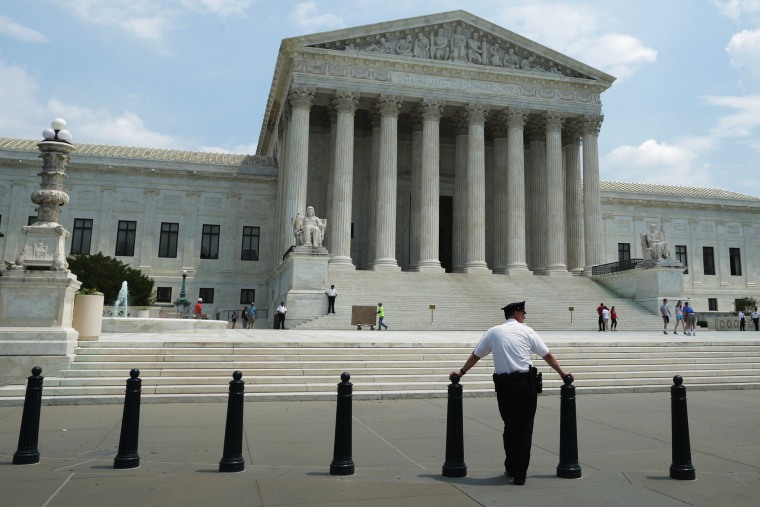Marco Rubio, like most Senate Republicans, intends to maintain a blockade against any Supreme Court nominee put forward by President Obama, regardless of the person's qualifications. He even has a talking point he's eager to share.
Yesterday, CNN's Jake Tapper noted, for example, that Justice Anthony Kennedy was confirmed in President Reagan's final year in office, but Rubio replied that doesn't count because the nomination was made a couple of months prior. The senator added:
"This is a tradition that both parties have lived by for over 80 years where in the last year, if there was a vacancy in the last year of a lame duck president, you don't move forward."
Rubio isn't the only one using the word "tradition" this way. Sen. Lisa Murkowski (R-Alaska) said on social media yesterday that President Obama should "follow a tradition embraced by both parties and allow his successor to select the next Supreme Court justice."
I'm not unsympathetic to the idea that traditions matter in the political process. In fact, I made just such a case earlier this week, exploring the consequences of congressional Republicans abandoning traditional norms that have helped make governing possible for generations.
But now seems like a good time to add some clarity to the matter. Honoring traditions is one thing; making up traditions that don't actually exist is something else.
Look at that Rubio quote again: "This is a tradition that both parties have lived by for over 80 years where in the last year, if there was a vacancy in the last year of a lame duck president, you don't move forward."
Now, I have no idea if Rubio is confused, uninformed, or trying to deceive the public. I do know, however, that his talking point doesn't make any sense.
There is no such "tradition." In order for something to become "traditional," it has to happen routinely over the course of many years, and in this case, the number of instances in which both parties have agreed to leave a seat on the Supreme Court vacant for a year, waiting for an upcoming presidential election to come and go, is zero.
Or put another way, if Rubio and Murkowski want to compile a list of all the examples that help establish this tradition -- instances in which Supreme Court vacancies went unfilled because it was a presidential election year -- I'd find that incredibly useful.
But I have a hunch such a list won't appear anytime soon. That's because plenty of presidents have nominated justices in election years -- and those nominees have generally been confirmed.
One might even say the American tradition holds that presidents do their jobs when there's a vacancy (choosing a nominee), which leads senators do their jobs (consider that nominee for the bench).
It's one thing to make up "rules" that don't exist. But to characterize an event that hasn't occurred as a bipartisan "tradition" is to take partisan propaganda to unhealthy levels.
